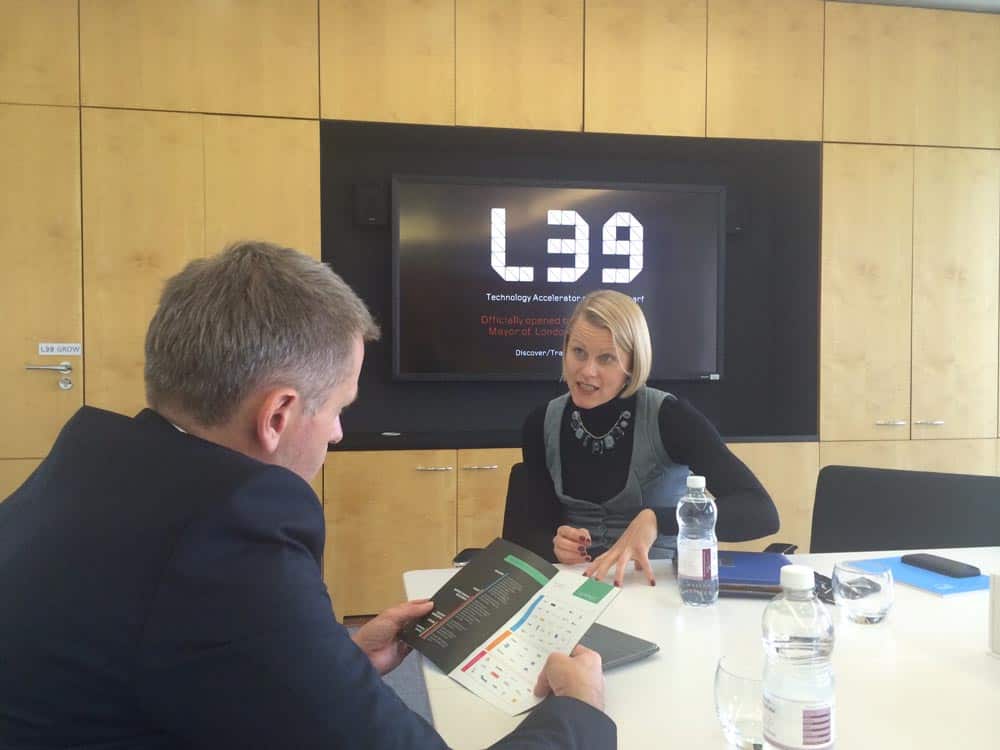
The cryptocurrency world spins much faster than most people realise. Just when you think you have caught up with cryptocurrency, alt coins, app coins and off-block chain developments, you realise the world has moved on.
Philip Ozouf with Claire Cockerton at Level 39, London
Actually, to be clear, it is the entrepreneurs in the cryptocurrency world that have moved on and developed new ideas, then built them into applications by leveraging recent technologies. By comparison, the traditional world appears frozen in time, particularly the banks. Even regulators and governments seem to be moving quicker than the supposedly ‘dynamic’ banking sector.
It appears that banking, in the general sense, is reluctant to engage and embrace this new paradigm, although little clarity is given to explain why, and contradiction is commonplace. Banks will deny working with crypto currencies, yet there is indelible proof that some of their most ardent detractors are facilitating cryptocurrency business.
Much is made in the cryptocurrency world of frictionless transactions, where layers of middle men and fees are removed. The threat of disintermediation could be a factor, or perhaps fear of another Barings disaster. Regulation and settlement risk is another oft-quoted excuse, yet the rationale is never communicated outside the corridors of corporate headquarters.
However, there is a real need for alternative currencies. Take, for example, the impact of M-Pesa. Launched in Kenya and based on local SIM cards as a priority mobile payment solution, initially designed to pay policemen, it quickly took off and provided a solution to the unbanked society. By 2012, it had over 17 million users. Clearly then cryptocurrencies present a wide opportunity for oppressed nations held back by corrupt governments, or economies with vast inflation, and can be potentially life saving.
There are companies out there prepared to create innovative solutions to act as middle men for the banks. Indeed, they have had some success, but their fortunes are short lived and their partners fickle, dancing to irrational tunes. Indeed, one such pioneer who should be congratulated, Capital Treasury Services (CTS), has just had the lifeblood cut from its banking arteries and ceased trading in the Isle of Man area despite governmental support.
The CTS claims that it experienced negative influence from banking partners. Under these circumstances, it was forced to halt its services for companies who were involved with digital currencies. A UK exchange – with substantial backing – was using CTS, but has now had to switch to a number of European banks however they would much prefer to be regulated and exist within the UK’s Tier 1 banking system.
Meanwhile, some institutions and smaller banks are quietly breaking rank. Under certain circumstances, they are open to operating in this space, but it's not something that is openly broadcast. At this point in time, the industry continues to innovate and move forward against a backdrop of constant tension surrounding the subject.



